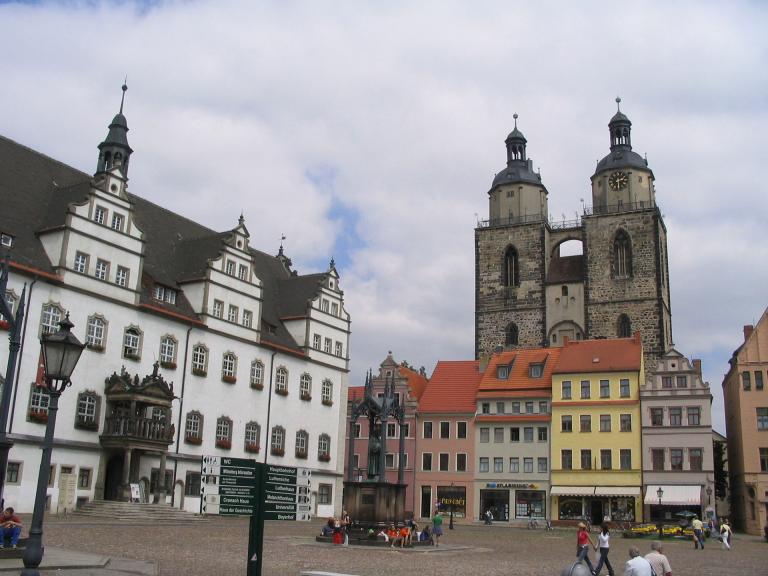
(Wikimedia Commons public domain image)
Eric Metaxas is an author for whom I have great admiration, and I’ve recently commenced reading his biography of Martin Luther: The Man Who Rediscovered God and Changed the World. Here’s a passage from that book that I thought some might find interesting. It describes popular attitudes toward the Father and the Son in the early 1500s, just prior to the beginning of the Protestant Reformation:
God the Father and Jesus the Son were both principally thought of as fierce judges. So the role of comforter fell to Mary, the human one who understood us and our trials, the soft mother full of grace who could protect her beloved child from harsh and unyielding men. Although Christian doctrine had always clearly taught that Jesus himself had been fully human, and could therefore understand and sympathize with our trials and sufferings and temptations, the reality of church life at this point in history was that this part of Jesus had mostly been ignored, so that he was now thought of as every bit as distant and remote and terrible as God the Father ever had been. So only Mary, his entirely human mother, could comfort us. And not only that, but she could appeal to her harsh and perhaps indifferent son as only a dear mother could. Similarly, the faithful frequently appealed to the saints to understand human difficulties, again feeling that by dint of their humanity, they were closer to us than Jesus, who might technically have been human but who we knew was actually God. The saints would therefore be more patient with us and more desirous of helping us, and perhaps the implication was also that they had more time on their hands than God himself, who was far too busy running the vast universe to be bothered with our insignificant concerns. (35-36)
Just a few pages before (on page 31), Metaxas had related the pivotal episode of young Martin Luther’s terrifying experience outdoors during a fierce thunder and lightning storm when, in terror for his life, he had screamed out “Ich will ein Mönch werden!” (“I will become a monk!”). His first instinctual response, though, was to cry for divine help. But not directly to God. “Hilf du, Sankt Anna!” he had cried, appealing to the mother of the Virgin Mary. “Help me, Saint Anne!”
I will, incidentally, be leading a tour in Germany in June 2020, not only to the legendary Oberammergau Passion Play but to a number of sites associated with the very dramatic story of Martin Luther and the Reformation:
https://www.cruiselady.com/tours/experience-germany-oberammergau/










